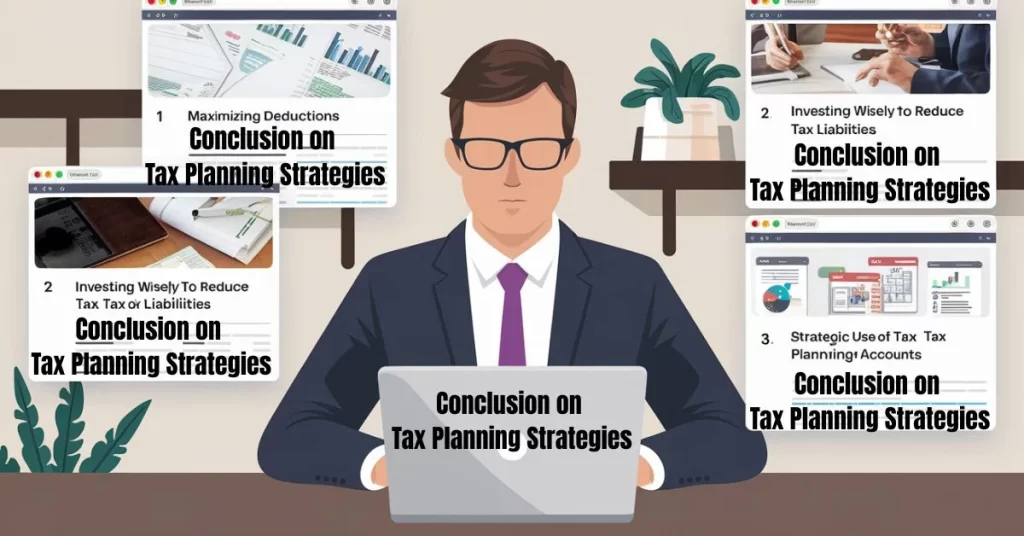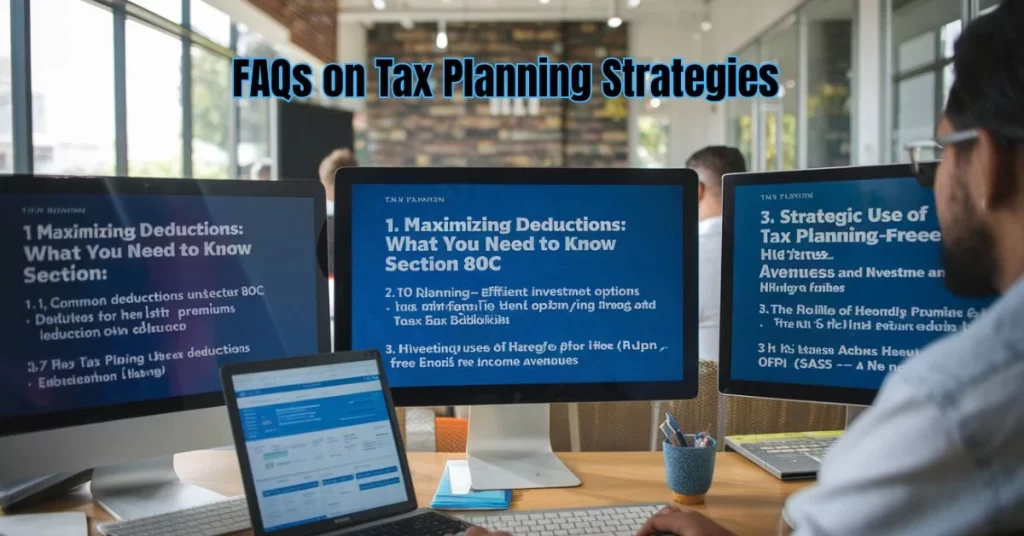Maximize Your Wealth: 7 Essential Indian Smart Tax Planning 2025 Strategies. You Should Start Implementing Today
Introduction of Tax Planning 2025 Strategies
Hey there! If you want to stretch your hard-earned money further, you’ve landed in the right spot. Tax planning 2025 isn’t just another boring task; it’s one of the most powerful tools for maximizing wealth. Understanding the Indian tax structure and its recent updates can help you navigate the tricky fiscal waters. So, let’s dive into some proactive strategies that can make a real difference in your financial journey.
Update Your Tax Planning: Update Your Basic Income Tax Knowledge: Ultimate Guide
Understanding the Basics of Taxation

1.1 Overview of Tax Systems
India’s tax system is divided mainly into direct and indirect taxes.
- Direct Taxes: These are the ones you pay directly to the government, such as income tax. Simply put, the more you earn, the more you pay.
- Indirect Taxes: Stuck on that rainy-day snack? You pay these taxes whenever you buy goods and services, like the Goods and Services Tax (GST).
Understanding the income tax slabs and rates is crucial. The bare tax slabs for individuals can vary depending on your age and total taxable income. Remember, these can change, so a little diligence can save you bucks!
1.2 Key Tax Laws and Updates
Each year seems to bring some new surprises in the budget, right? Well, here are a few highlights for 2023 that can change your approach to taxes:
- New Initiatives: The government has rolled out various schemes for middle-income earners.
- Exemptions and Deductions: There are changes, so be sure to check out what’s new in sections like Section 80C and others.
And, yes, keep an eye out for the latest Supreme Court or High Court rulings, as they can significantly impact tax laws.
1.3 The Importance of Staying Informed
Let’s face it: tax laws can get as confusing as your last family function. That’s where a tax consultant or financial advisor can be your best friend. They help you navigate the complexities and update you on the latest tax news.
And don’t forget to do annual tax audits. It might sound like a chore, but keeping everything in check yearly can save you from nasty surprises down the line.

Maximizing Deductions: What You Need to Know
2.1 Common Deductions Under Section 80C
One of the most effective ways to save on taxes is by utilizing Section 80C. Here are some eligible investments:
- Public Provident Fund (PPF): A government-backed saving instrument that’s low-risk and tax-free.
- Equity Linked Saving Schemes (ELSS): Riskier but potentially more rewarding.
- National Savings Certificate (NSC): A secure investment option with decent returns.
Be aware of the limits for these deductions and keep all relevant documentation. You don’t want to be scrambling when it’s tax time!
2.2 Deductions for Health Insurance Premiums
Health insurance isn’t just peace of mind; it’s also tax-deductible under Section 80D. Here’s the deal:
- Individual plans vs. family floater plans: Family plans can give you a larger deduction.
- Keep an eye on healthcare costs. They’re constantly rising, and monitoring can maximize your deductible expenses.
2.3 Education Loan Deductions
Studying hard? You can benefit from Section 80E, which allows you to deduct interest on your education loans.
- Make sure you meet the eligibility criteria.
- The best part? Investing in education pays off in more ways than one in the long run.
Retirement Plan: Ultimate Guide on Breaking Points to Maximize Your Savings
Investing Wisely to Reduce Tax Liabilities
3.1 Tax Planning 2025 – Efficient Investment Options
When you’re looking to invest, some options are more tax-efficient than others:
- Equity Investments: These can be taxed at different rates based on how long you hold them.
- Tax-saving Mutual Funds: A smart way to gain tax reductions while growing wealth.
- Public Provident Fund (PPF): This is a safe investment option offering tax benefits and attractive returns.
3.2 Real Estate and Tax Benefits
Thinking of investing in property? Here’s how you can save:
- Home Loan Interest Deductions: You can claim deductions on interest paid.
- Long-Term Capital Gains Tax: Understanding how it is taxed can make a significant difference when selling property.
- If you buy or rent out properties, claim your expenses!
3.3 Utilizing Tax Planning 2025 Free Income Avenues
It’s always smart to explore avenues that provide tax exemptions:
- Tax-Exempt Bonds: These can offer great interest rates without tax worries.
- Municipal Bonds: A solid option for stable income with tax advantages.
- Investing in Gold: Understand the Tax Implications Before You Get Started.
Strategic Use of Tax Planning 2025 -Friendly Accounts
4.1 The Role of the National Pension Scheme (NPS)
Want to save on taxes and prepare for retirement? NPS is your friend!
- Max out your deductions and ensure you’re contributing enough.
- Unlike some retirement plans, NPS offers market-linked returns, which can be pretty rewarding.
4.2 Utilizing Employee Provident Fund (EPF)
The EPF is not just a safety net but also a tax-saving tool.
- Know your contribution limits and the magic of compounding interest.
- Withdrawals are usually tax-free if you meet specific conditions.
4.3 Health Savings Accounts (HSAs) – A New Opportunity
HSAs are a relatively new player on the scene and worth checking out!
Also Read: 18% GST Waiver on Healthcare: How Indians Secure Their Health
- They offer numerous tax benefits and ensure you meet the eligibility criteria.
- You can grow your savings and investments tax-free, making healthcare more manageable.
Advanced Tax Planning 2025 Techniques

5.1 Gift Tax Exemptions and Wealth Transfer
Gifting is good, especially when it’s tax-efficient!
- Understand the implications and employ effective strategies to transfer wealth.
- Don’t forget to use any available exemptions wisely.
5.2 Tax Implications of Cryptocurrency Investments
Crypto is all the rage, but make sure to understand the tax rules around it:
- Tax regulations are constantly evolving, and understanding how to handle capital gains is crucial.
- Keep track of your transactions to simplify reporting.
5.3 Effective Use of Trusts and Estates
Trusts are often overlooked, but they can be highly beneficial.
- Setting up family trusts can help manage inheritance and properties.
- They can also provide tax benefits, making wealth transfer smoother.
Conclusion on Tax Planning 2025 Strategies
Alright, folks, we’ve had a lot to go through today! The takeaway? Strategic tax planning can seriously boost your wealth. Don’t sit on the sidelines; kick-start your implementation of these strategies today. Always remember, being proactive will help you stay ahead of the game.
Summary

- From understanding the basics of the Indian tax system to advanced techniques like trusts, you can do plenty to maximize your wealth.
- Staying informed, utilizing deductions, and investing wisely can lead to substantial savings.
Read and minimize your Tax Deduction: Why You NEED to Submit Form 15G and Form 15H for Income Taxes
FAQs on Tax Planning 2025 Strategies

1. What is the difference between tax avoidance and tax evasion?
Tax avoidance is the legal minimization of your tax bill, while tax evasion is the illegal non-payment of taxes.
2. How can I calculate my taxable income accurately?
You can calculate your taxable income by adding your total income and subtracting any eligible deductions.
3. What are the deadlines for tax filings in India for 2024-25?
Typically, individual tax returns must be filed by July 31 of the year following the assessment year; however, please check the current deadlines for accuracy.
4. Can I amend my tax returns if I make an error?
Yes, the Indian tax system allows for amendments if you discover mistakes in your original returns.
5. What are the risks of not planning my taxes effectively?
Failing to plan can lead to oversights that result in missed deductions, potentially leading to higher tax payments and fines.
Hi there! I am Sudip Sengupta, the face behind “Tfin Career”. Tfin Career is a sole proprietorship finance and consulting firm that makes complex tax and financial concepts easy to understand for everyone. With more than 21 years of experience in the field, I have noticed that people cannot make the right decisions in this field. So, I decided to create “Tfin Career” to help individuals and businesses alike. Here I urge those who are confused to make better choices. Also, it is good news for my dear clients and every visitor that I/we are going to start a training module for those who want to choose a career path in Finance and Taxation. Just follow my website.
Thank you for reading this post, don't forget to subscribe!






